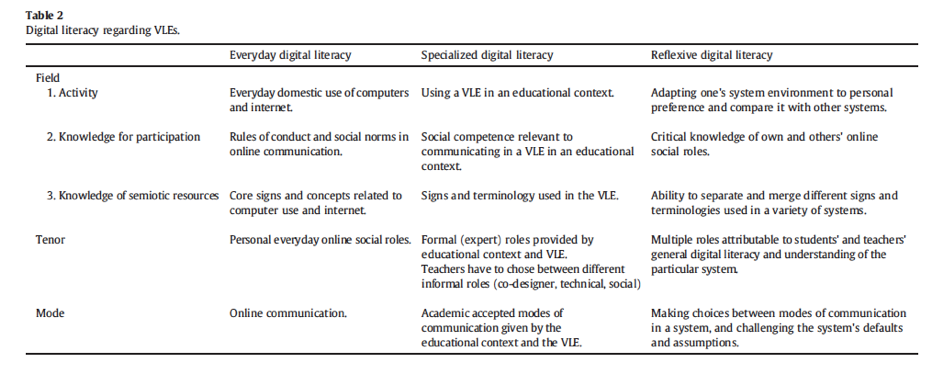When it comes to digital technology, we are in many ways ‘swimming in water’. We cannot see the components that constitute the water (chemistry), how it is related to environmental issues (biology), who has access to it and who has not (economy) et cetera. Instead, we tend to focus on different ways to survive in the water or suggesting various techniques of how to swim effectively. Sort of.
This abstract metaphor is meant to describe the complexity of understanding the basics of education and technology. Without agreements on ‘first principles’, how can we navigate correctly and make assumptions that guide relevant and clever suggestions on technology use? For example:
- Are residents digital litterate? Are visitors digital competent in some respects?
- Responsibility teachers: a) Should teachers that are residents require students to become residents? Blogging will be part of the courses. b) Should we contend with teachers that are visitors and only can support students to only to develop limited digital competence? Blogging will not be part of the courses.
- Responsibility education: Can specialised digital literacy be defined and hence be required of both teachers and students?
So, my questions require a common understanding of literacy in general. It requires a common understanding of the now blurring concepts involving digital literacy and digital competence. I myself is very fond of understanding literacy as some sort of a high order ability, as outlined by Knutsson et al (2011) in the register they name ‘reflexive digital literacy’. We might as well consider ‘specialised digital literacy’ workable for describing the competences needed for any specialised environment (such as education). If education decides that for example blogging fosters learning and critical thinking, then all teachers must become residents of blogging. Then we can ask students to write and comment learning blogs.
 Knutsson et al. (2011) Identifying different registers of digital literacy in virtual learning environments
Knutsson et al. (2011) Identifying different registers of digital literacy in virtual learning environments
But, can we ever expect every teacher to become a digital specialist concerning technology for education?